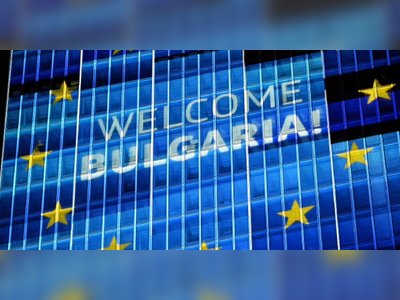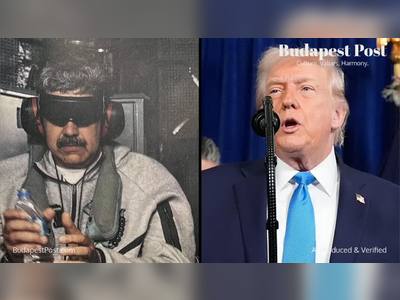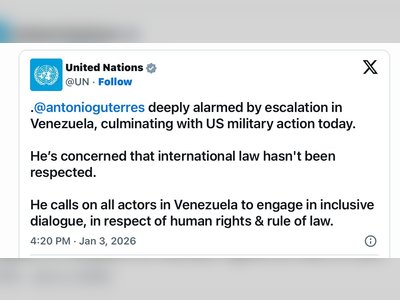
TikTok's Uncertain Situation: Might 70 Million Americans Experience a Digital Shutdown?
With Google and Apple gearing up for possible TikTok bans, a federal court decision has sparked a heated discussion on the balance between national security and free speech in the digital era.
In a significant turn of events within the tech industry, Google and Apple are on the verge of potentially banning TikTok after a federal court dismissed ByteDance's appeal for a stay order.
With the Supreme Court now determining TikTok’s future, about 70 million American users might soon see their screens go blank—highlighting the intersection of technology, politics, and national security.
The U.S. government’s position emphasizes concerns about data privacy and national security, pointing to TikTok’s Chinese ownership through ByteDance as a key issue.
This situation echoes the age-old conflict between security and freedom, reminiscent of historical trade bans and embargoes on entities from hostile nations.
TikTok argues that a ban could not only restrict an app but also infringe on First Amendment rights by silencing millions of voices.
Critics warn of a slippery slope: today it's TikTok, but tomorrow any app could face similar scrutiny.
The need for oversight is clear—governments have a duty to protect national interests, but does this vigilance cross into suppression?
The cultural and economic impact of such a ban is substantial.
TikTok is more than just an app; it’s a dynamic platform that boosts global creativity and significantly contributes to the economy.
Its removal could unintentionally stifle innovation, creating a gap that might be filled by social media giants like Facebook and Instagram, further tightening their market control.
Additionally, this debate reveals what some see as hypocrisy in the tech sphere.
Had TikTok been acquired by American companies like Microsoft or Oracle, would the security concerns have remained?
Ultimately, this digital dilemma requires a delicate balance.
Benjamin Franklin’s famous words caution against trading essential liberties for temporary safety.
As this situation heads to the Supreme Court, it prompts critical reflection on our priorities—security versus freedom—and the digital future we are shaping.
With the Supreme Court now determining TikTok’s future, about 70 million American users might soon see their screens go blank—highlighting the intersection of technology, politics, and national security.
The U.S. government’s position emphasizes concerns about data privacy and national security, pointing to TikTok’s Chinese ownership through ByteDance as a key issue.
This situation echoes the age-old conflict between security and freedom, reminiscent of historical trade bans and embargoes on entities from hostile nations.
TikTok argues that a ban could not only restrict an app but also infringe on First Amendment rights by silencing millions of voices.
Critics warn of a slippery slope: today it's TikTok, but tomorrow any app could face similar scrutiny.
The need for oversight is clear—governments have a duty to protect national interests, but does this vigilance cross into suppression?
The cultural and economic impact of such a ban is substantial.
TikTok is more than just an app; it’s a dynamic platform that boosts global creativity and significantly contributes to the economy.
Its removal could unintentionally stifle innovation, creating a gap that might be filled by social media giants like Facebook and Instagram, further tightening their market control.
Additionally, this debate reveals what some see as hypocrisy in the tech sphere.
Had TikTok been acquired by American companies like Microsoft or Oracle, would the security concerns have remained?
Ultimately, this digital dilemma requires a delicate balance.
Benjamin Franklin’s famous words caution against trading essential liberties for temporary safety.
As this situation heads to the Supreme Court, it prompts critical reflection on our priorities—security versus freedom—and the digital future we are shaping.
AI Disclaimer: An advanced artificial intelligence (AI) system generated the content of this page on its own. This innovative technology conducts extensive research from a variety of reliable sources, performs rigorous fact-checking and verification, cleans up and balances biased or manipulated content, and presents a minimal factual summary that is just enough yet essential for you to function as an informed and educated citizen. Please keep in mind, however, that this system is an evolving technology, and as a result, the article may contain accidental inaccuracies or errors. We urge you to help us improve our site by reporting any inaccuracies you find using the "Contact Us" link at the bottom of this page. Your helpful feedback helps us improve our system and deliver more precise content. When you find an article of interest here, please look for the full and extensive coverage of this topic in traditional news sources, as they are written by professional journalists that we try to support, not replace. We appreciate your understanding and assistance.











